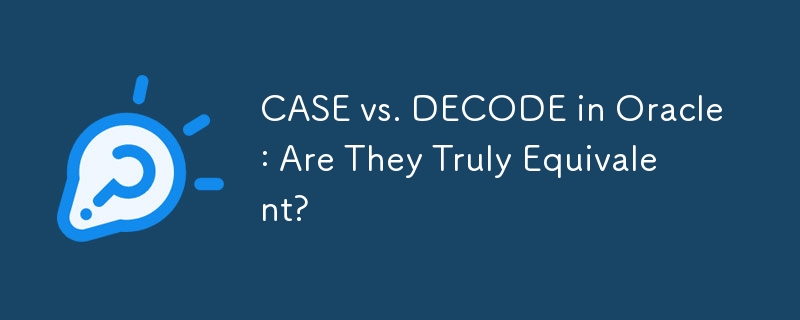

Although CASE expressions and the DECODE function may seem equivalent, a closer examination reveals subtle differences in their operation and output data types.
While both constructs allow for conditional logic, the simple CASE expression and the searched CASE expression are not equivalent to the DECODE function. Using the DUMP function to inspect the data types of their results shows that DECODE returns a VARCHAR2 (data type 1), while the CASE statements return numbers (data type 2).
This difference can have implications, as Oracle may not perform implicit conversion to ensure data type alignment in certain contexts, such as UNION operations.
When dealing with dates, DECODE behaves differently depending on whether NULL is involved. If any of the search values or the default value is NULL, DECODE converts the expression to a VARCHAR2. However, if the default value is not NULL, no such conversion occurs, and the data type remains the original date type.
In addition to these data type differences, DECODE has two notable functional limitations: it cannot be used within PL/SQL, and it lacks the ability to compare nulls directly.
Despite superficial similarities, the CASE statement and DECODE function differ in their data type handling and functionality. While DECODE is a convenient function, its potential for unexpected data type conversions and functional limitations makes the CASE statement a more reliable and flexible choice for implementing conditional logic in SQL.
The above is the detailed content of CASE vs. DECODE in Oracle: Are They Truly Equivalent?. For more information, please follow other related articles on the PHP Chinese website!




